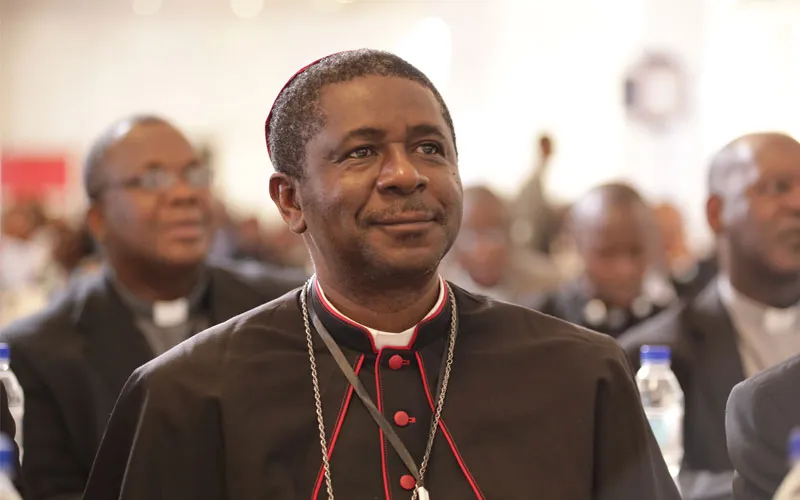The Archbishop of Bemanda who doubles as the President of the National Episcopal Conference of Cameroon (NECC) told ACI Africa that there's still a high degree of insecurity in the country.
He said that movement within the troubled regions is still difficult, and added, “We still see these lockdowns, and kidnappings for ransom still going on by some of the separatist soldiers.”
Highlighting the various ways in which the Church has been affected by the conflict, Archbishop Nkea who previously served as Apostolic Administrator of Mamfe Diocese in Cameroon’s Southwestern region said that there has been a lot of migration of Christians from the embattled regions, leaving many churches empty.
“Churches in some parts of the embattled region are empty because the population has moved,” he said, and added in reference to 2019 events in Mamfe Diocese, “When I was in my former Diocese, I had to close 10 parishes because there were no people anymore. Everybody escaped.”
“We also have had attacks on Priests and Religious,” he said, and recalling the murder of a Kenyan-born member of the Mill Hill Missionaries, added, “In 2019, I came to Kenya to bury one of the Kenyan missionaries, Fr. Cosmas Ondari, who was working in my Diocese and was shot.”
(Story continues below)
“And just last September, five Priests, a Religious, a Catechist, and some young people were kidnapped and kept for 37 days in the bush, and the kidnappers were demanding ransom,” the Cameroonian Catholic Archbishop said in reference to the 16 September 2022 attack on St. Mary's Catholic Nchang Parish of Mamfe Diocese.
The Cameroonian Archbishop shared that the Church, in its attempts to broker peace between warring factions in the country, always finds itself caught in the middle.
“As religious leaders, we have been trying to talk with the government and also see how to talk with the boys (the separatist fighters), and it has not been an easy task. But we are determined to continue working until peace returns to this troubled place,” Archbishop Nkea said.
“The church is often caught in between the warring factions,” he said, and explained, “While some of the government people think that the church is supporting separatist fighters, the separatist fighters also think that the church is backing up the government. And so that makes our role very difficult. But we have to be persistent. And we have to be consistent.”
In the March 15 interview with ACI Africa, Archbishop Nkea found it regrettable that the struggle for peace in Cameroon has been overlooked by the international media.
He said, “It is so unfortunate that one person is killed in Afghanistan, on CNN, on BBC, and everywhere. Here in Cameroon, 10 people are butchered in one day and nobody mentions anything.”
Agnes Aineah is a Kenyan journalist with a background in digital and newspaper reporting. She holds a Master of Arts in Digital Journalism from the Aga Khan University, Graduate School of Media and Communications and a Bachelor's Degree in Linguistics, Media and Communications from Kenya's Moi University. Agnes currently serves as a journalist for ACI Africa.








